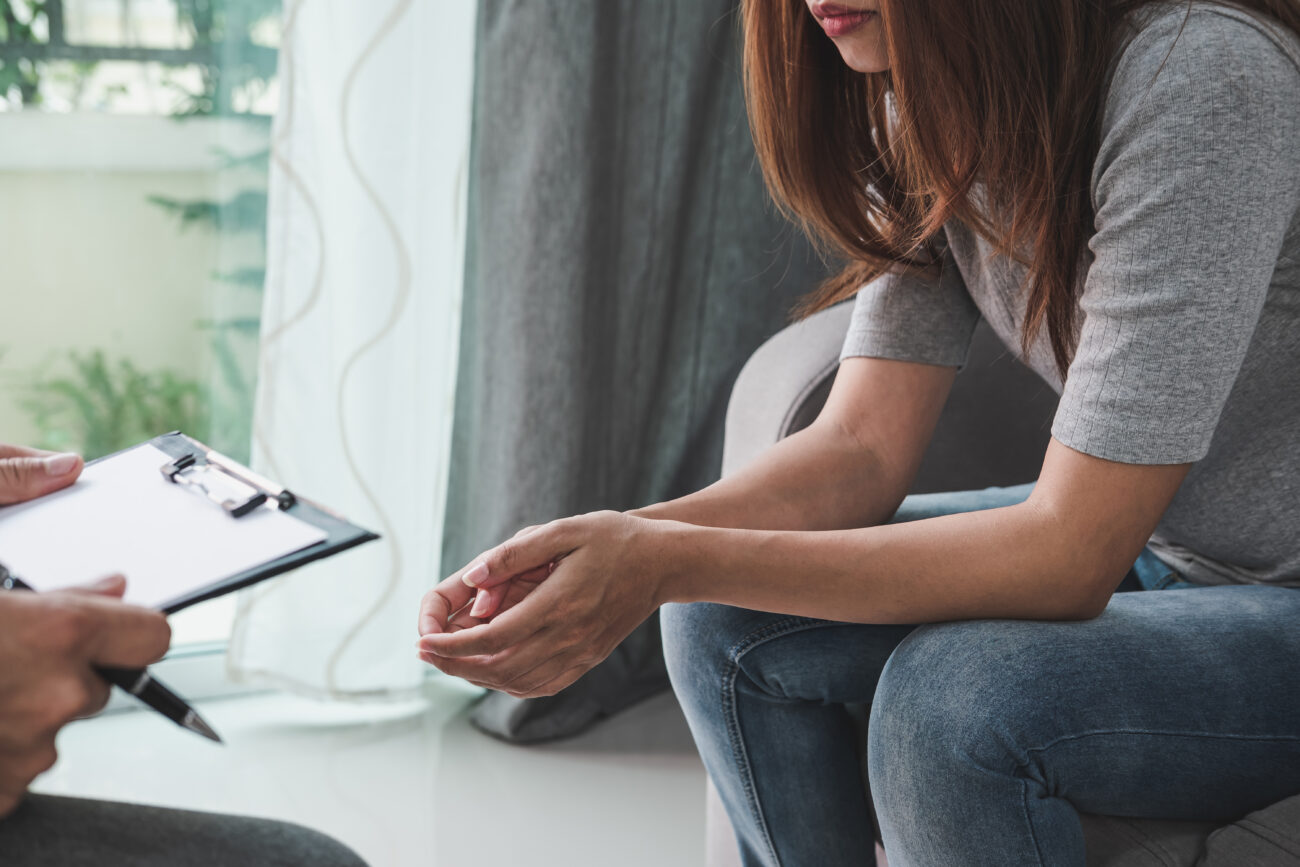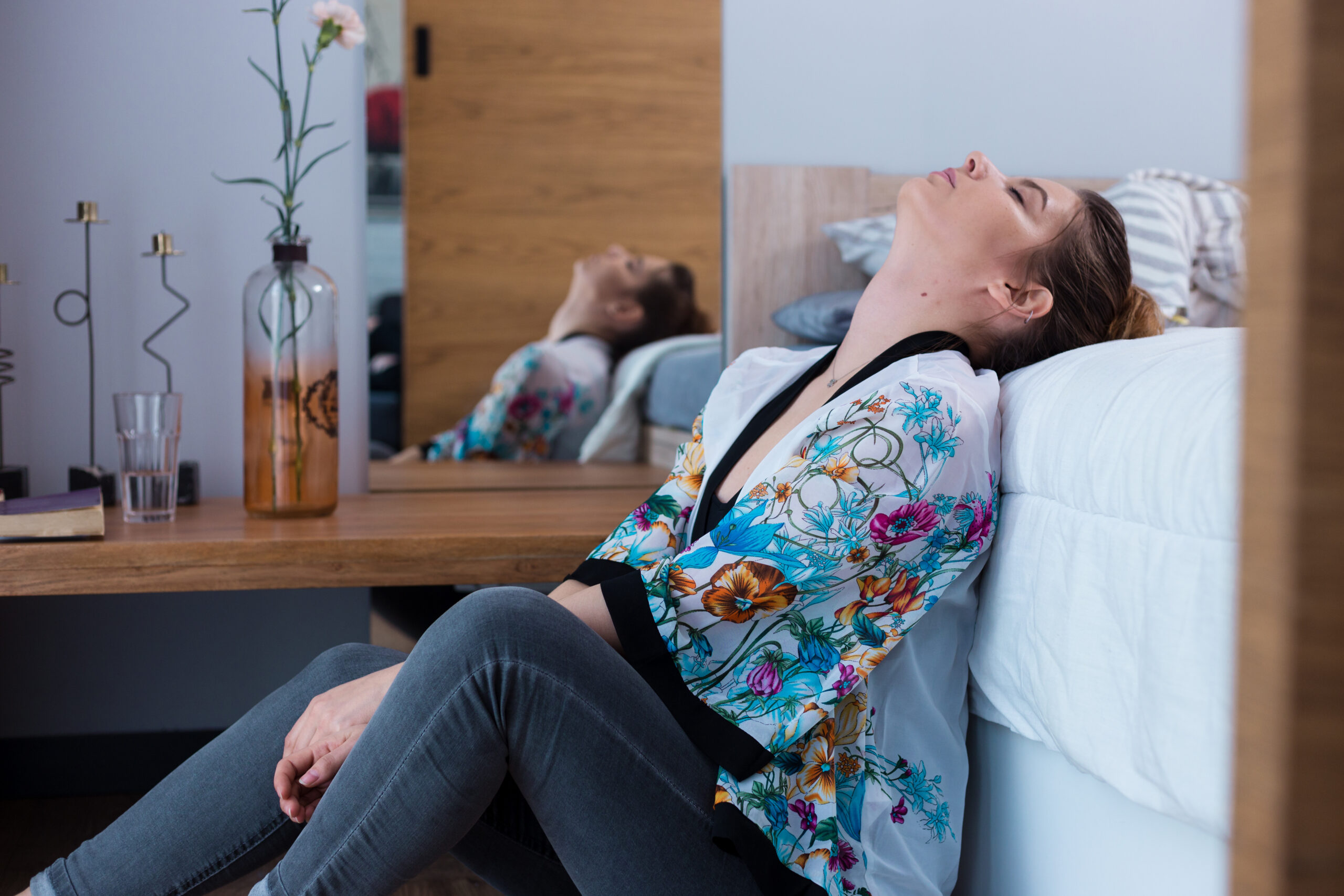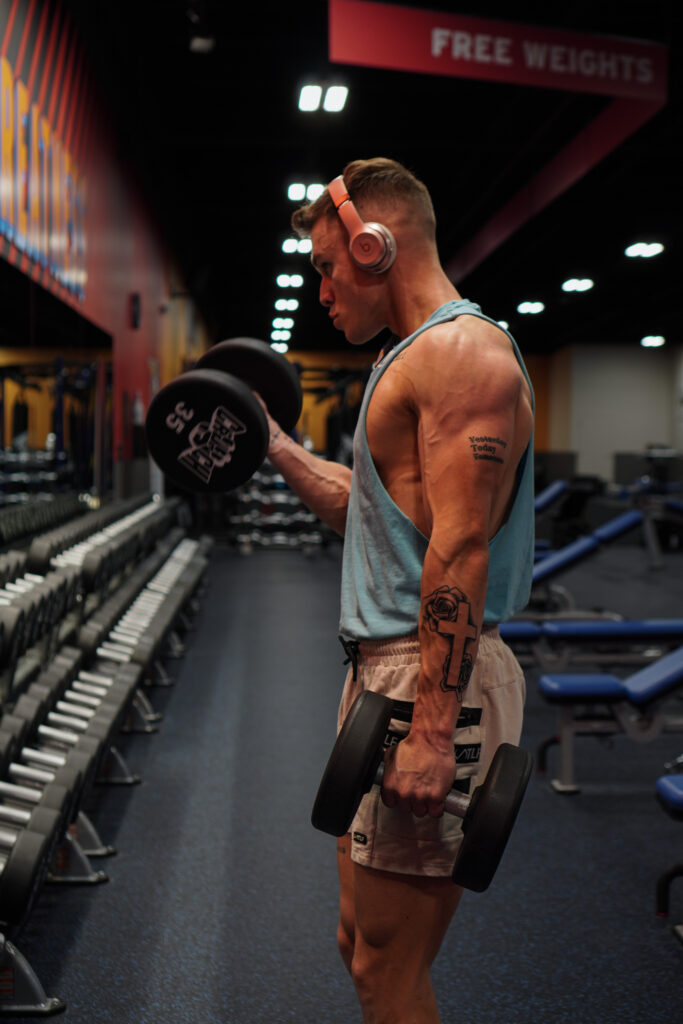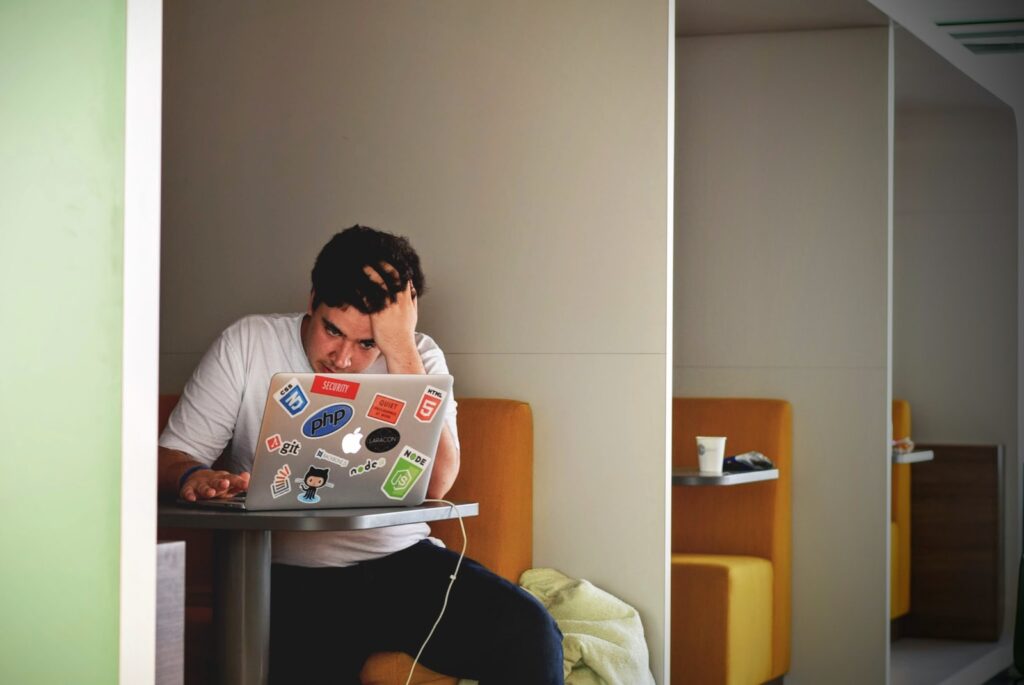My Initial Experience
People often overlook chronic illnesses, AKA “invisible disabilities”. People tend to refer to those struggling with them as lazy, unattentive, unreliable, rude, etc. I’ve been called these things many times just because I wasn’t able to keep up with daily “normal” activities like everyone else was.
I grew up as an athlete. I was outgoing and always wanted to stay busy. I was the “happy friend” for most of my life. But there was always something off. It always seemed extra difficult for me to keep up with everyone else. I felt like I would lose my energy before anyone else, I would crave taking a break when I knew I couldn’t or had just had one. Usually after a tournament or a game, I would sleep for days. I never knew why none of this would happen to my teammates.
I was diagnosed with Postural Orthostatic Tachycardia Syndrome (POTS) when I was 18, right before graduating high school. By this time, I had already decided to go to a school 8 hours away from home. I had mixed emotions about this. I was glad to finally have an answer for all the challenges I dealt with, but I was so angry that it had taken 18 years for someone to figure it out.

The Start of Downhill
POTS is a type of dysautonomia, which means the systems in your body that are supposed to function without you thinking about them don’t function correctly on their own. Such as, your digestive system, nervous system, immune system, body temperature, etc. To learn more, click here.
Even now, at 21 years old, I have had to explain what POTS is to the majority of doctors I have met to try and help me. And right away, I don’t feel safe. Doctors should know these things. Why was I teaching them about what was wrong with me when I barely understood it myself?

I still chose to go to school 8 hours away from home despite my diagnosis. My belief was that I could manage my symptoms and take care of myself. I wanted to live the college experience and for a while, I was in denial about having these challenges.
The summer before my freshman year I caught mono. This put me into my first POTS flare-up. This was the worst time of my life. I remember move-in weekend. I was so fatigued that I could barely do anything. My neck was so sore and swollen that I could barely talk, my stomach lining was inflamed, and overall I was in so much pain. My parents rented a hotel room near my school for a couple days so they wouldn’t leave me there like that. They were scared.
My First Semester
Living in a dorm with a chronic illness was a lot more difficult than I had anticipated. I lived in a suite with 5 other girls. I shared a bedroom with 1, and the living room and bathroom with all of them.
The normal college dorm experience is, in my opinion, a personal hell for a chronic illness student. Communal bathrooms are very bacterial and lack 100% accessibility. People often disrespected the quiet hours. Roommates often have guests over. Elevators not always being present can lead to exhaustion. Dorm halls are just not the cleanest places to begin with. It’s very easy to get sick living in a dorm, and I was sick pretty much the whole year.
During my first year of college, I missed more classes than I could count. I went from making friends with everyone to suddenly not really talking to anyone, and was pretty much living off of frozen meals and a microwave.
My roommates and I joined a sorority during my first semester, but I could only manage to attend the mandatory events. I tried to go out on weekends, but I felt like I was forcing myself through the motions of a normal college experience. I wasn’t enjoying it. It was obvious that I was annoying my friends, running out of energy almost immediately and often wanting to leave early. Eventually, I started staying in on weekends, skipping classes more often, and barely keeping up with my work. I was only getting worse.
Fainting Spell
One time that year, I had a cold and felt gross overall. I decided to take a shower. The roommate that I shared a bedroom with was home at the time (thank God). About 5 minutes into my shower, I couldn’t see anything. I screamed my roommate’s name, but I had no sense of how loud I was able to be. I was scared she couldn’t hear me.
The next thing I knew I was lying face down on the tile floor. She came running in, picked me up, and carried me to my bed. She covered me in a blanket, called my mom, and helped me get dressed. EMS came to check me out and make sure my head was okay, because it was bleeding. This wasn’t the first time in my life I had experienced a fainting spell, but it was the worst. And it was the first time I’d had one since I was diagnosed with the reason for all of this.
By winter break, I was in the hospital with a rare bacterial infection. I became underweight and they diagnosed me as malnourished. There was a constant pain in my upper abdomen for days on end. I was scared for myself. I ended up slowly healing from this infection, but was still very much unwell. Despite being sick for all of winter break, I decided to go back to school for the second semester. This was a bad idea. I was still underweight and was nowhere near being fully better. I was still in a flare-up, still in pain 24/7, and this threw me deeper into it.
The Bridge Between Mental and Physical Health
As my second semester started, I tried my best to go to my classes. But I wouldn’t go anywhere else. My friends would have to force me to hang out with them if we weren’t hanging out in my room. I had no interest in anything other than getting through the rest of the school year.

The more I avoided leaving my room, the worse I got. Not only physically, but mentally. I had never really dealt with anxiety or depression before my freshman year. This experience changed that significantly. I became too scared to be by myself. I couldn’t trust myself to stay conscious because of how ill I was. The idea of taking a shower while home alone terrified me.
I was afraid that I couldn’t take care of myself anymore and required help. And I did. But I was so against admitting it. I grew mad at the world because of what I was going through. I couldn’t see any possibility of me getting better. My mental health went downhill very fast. I was in a deep depression at this point and couldn’t understand why any of this was happening. The amount of anger I felt and the fact that I was basically refusing to accept that this was my life would only make my physical health keep declining as well.
Coming Home
By the end of March 2023 my parents decided to bring me home. I had to get permission from the school to finish my classes online. I would zoom into my classroom lectures from my bedroom. On April 1, my parents drove 8 hours, packed me up, and drove me home. I only had a few days to break the news to my friends and say my goodbyes since I wouldn’t see them until the next fall. It was hard to explain and not everyone understood.
I spent the next few months on a clean diet, going gluten free, and taking walks around my background holding onto my mom’s arm. My body was so weak that I could barely get out of bed by myself. I had doctors scared of what would’ve happened if I had waited any longer to come home.
My parents brought me back to life by force feeding me, literally walking me, and driving me to every doctor appointment. They even found a specialty POTS clinic in Maryland that they took me to. They never left my side. I don’t know what I would’ve done without them.

I spent that summer working on my health, trying out different medications, and finally addressing the anxious and depressive feelings I had developed. For a long time, I refused antidepressants. I had gone my entire life being the “happy kid” or “bright side” as my mom used to call me. I would not let my mind accept that this was something I suddenly needed. The idea of me needing something to improve my mental state made me even angrier. Little did I know I would grow to be so thankful for the help these medications give me.
The Uphill Journey
I did go back to that school for my sophomore year, but very quickly decided I didn’t want to be there anymore. My health wasn’t the only reason, and it wasn’t a good fit for me overall. I finished the first semester of sophomore year and then transferred to attend West Chester University.
The second semester of my sophomore year, at a brand new school, I started by taking one hybrid class and commuting from home, which is about 20 minutes away.
Now, I live in an apartment close to campus. I manage my struggles both mentally and physically, and I surround myself with people who can understand my challenges and make me feel at ease and at home. I take one in person class, one hybrid class, and two 100% asynchronous classes.

Chronic illness patients look like any other average person. Hence the nickname “invisible disability.” I can walk and I look like a normal girl. You wouldn’t think there is something wrong with my physical health just by looking at me.
However, I have a handicapped placard in my car that I wouldn’t be able to get around without. Half of my classes are asynchronous because there is no way I could make it to an in person class every day, multiple times a day. I have academic accommodations for in the classroom.
I have known numerous people with the same or similar struggles. Every single one of them has a story about their challenges with living a college life while dealing with something basically fighting your body from the inside. It is not easy.
Spread Awareness
My main takeaway here is that there are more people dealing with this than one might think. They all probably think they’re the only ones. I did, for a long time. Now I am 21, and a junior in college. I just recently found out that a girl I was an athlete with and very close with in high school deals with POTS as well. She has had many of the same struggles as I do.
We lived side by side for so long, completely unaware that we were struggling with similar things. I think we could’ve helped each other significantly, even mentally, if we had known. This is why more awareness about chronic illnesses needs to be spread.
Links to learn more:
https://www.invisibledisabilityproject.org
Josie DiMarcello is a junior at West Chester University working towards her bachelor’s degree in Media and Culture. She is very passionate about all things beauty, specifically about how culture is incorporated in all types of art (painting, sowing, hair, makeup, fashion, nails, tattoos, jewelry, etc.)! Outside of her studies, she enjoys participating in these forms of art activities, listening to music, and spending time with her dogs! Connect with Josie through her personal website!












